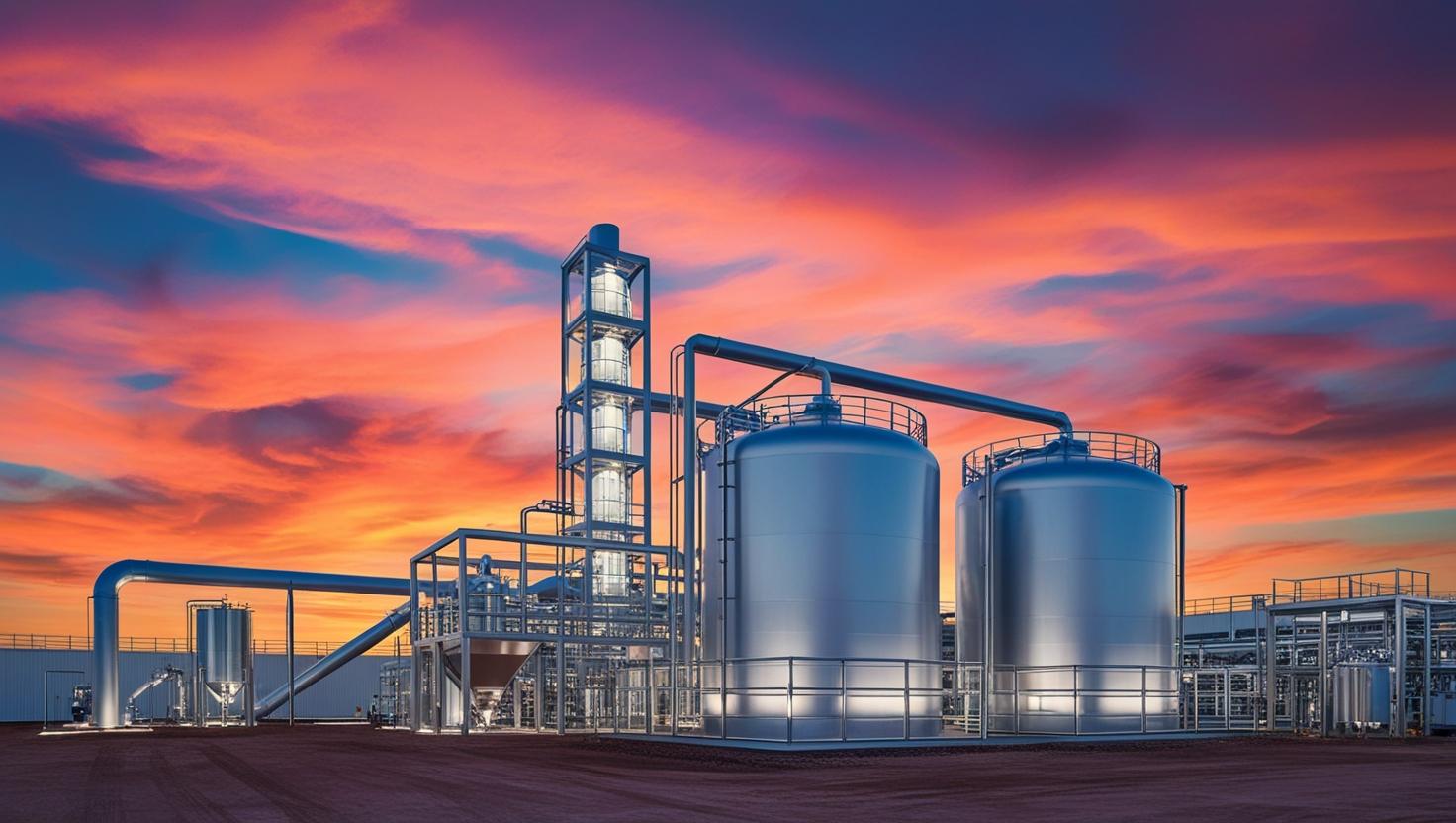This AI image showing modern processing plants or refineries was generated in Canva's Dream Lab
Malaysia is actively embracing sustainable diesel technologies to curb emissions, meet environmental regulations, and transition toward cleaner energy.
Below is a structured breakdown of the most impactful solutions driving this transformation.
1. AdBlue® and SCR Technology

What AdBlue® Does for Diesel Engines
AAdBlue® is an aqueous urea solution injected into the exhaust stream of diesel engines equipped with Selective Catalytic Reduction (SCR) systems. The urea decomposes into ammonia, which reacts with nitrogen oxides (NOx) over the catalyst to form harmless nitrogen and water vapor, enabling heavy-duty vehicles to meet Euro 5 and upcoming Euro 6 emission limits.
AdBlue® is indispensable for meeting Malaysia’s 2025 Euro 5 standards.
Why This Matters for Air Quality
SCR systems with AdBlue® can reduce NOx emissions by up to 85–90% under real-world driving conditions . In Kuala Lumpur, where road transport accounts for over 50% of urban NOx emissions, widespread SCR adoption is critical for public health.
Latest Air Quality Improvements
While specific recent data for Malaysia is limited, studies in other regions have shown that areas with high adoption rates of SCR-equipped vehicles have experienced notable reductions in ambient NOx levels and particulate matter.
Saving Money While Staying Compliant
While AdBlue® doesn’t enhance fuel efficiency, its use prevents costly penalties for non-compliance and extends engine life by reducing particulate buildup.
2. Biodiesel Blending

The Push for B20 Fuel
Malaysia has been implementing the B20 biodiesel program, which blends 20% palm methyl ester with regular diesel, in phases since 2020. The nationwide rollout has faced delays but aims to be fully implemented by 2025. This initiative reduces fossil fuel consumption and supports local palm oil producers.
Production and Consumption Progress
In 2022, Malaysia’s biodiesel production was approximately 1 billion liters.
Domestic biodiesel consumption reached about 998 million liters in 2023, indicating an increase compared to the previous year.

Research Findings on Emissions Reduction
Research indicates that using biodiesel blends like B20 can lead to reductions in particulate matter and carbon monoxide emissions compared to conventional diesel.
How Policies Help Biofuels Grow
The Malaysian government has implemented policies such as export taxes on crude palm oil to encourage local biofuel production. Additionally, tax incentives are provided to palm oil companies investing in biodiesel production, aiming to position Malaysia as a leading biofuel producer.
The Roadblock: Slow Infrastructure Upgrades
The nationwide implementation of the B20 mandate has been delayed due to infrastructure challenges, including the need to upgrade blending facilities at fuel depots. The government has allocated funds to support these upgrades, but progress has been slower than anticipated.
3. Renewable Diesel from Waste

Turning Trash into Clean Fuel
Hydrotreated Vegetable Oil (HVO), or renewable diesel, is produced from waste feedstocks like used cooking oil (UCO) and palm oil mill effluent (POME). This process converts waste materials into high-quality diesel fuel, contributing to waste reduction and energy sustainability.
Greener Skies with Sustainable Aviation Fuel
Malaysia is also investing in Sustainable Aviation Fuel (SAF) production, utilizing similar waste materials to produce eco-friendly jet fuel. These efforts align with global trends toward reducing aviation’s carbon footprint.


Government Policies Driving Change

Tax Reforms to Boost Biofuel Production
The government has implemented tax reforms, including higher crude palm oil export taxes, to prioritize domestic biofuel processing. Additionally, adjustments to the windfall profit levy aim to encourage palm oil producers to invest in biodiesel refining.
Funding Sustainable Palm Oil Practices
Replanting programs have been initiated to replace aging oil palm trees, with the goal of boosting yields and ensuring long-term feedstock availability for biodiesel production. These initiatives address concerns about deforestation and promote supply chain sustainability.
Building a Cleaner Tomorrow, Step by Step
Malaysia’s sustainable diesel plan combines advanced technology, supportive policies, and collaboration among stakeholders. From implementing AdBlue® in vehicles to promoting biodiesel and waste-based fuels, each solution contributes to a greener future.
Success relies on collaboration between farmers, businesses, and policymakers. By maintaining focus and working together, Malaysia can lead Southeast Asia toward a more sustainable and environmentally friendly future.
References
- https://www.argusmedia.com/en/news-and-insights/latest-market-news/2428021-biodiesel-group-sees-higher-malaysian-blending-by-2025
- https://www.argusmedia.com/en/news-and-insights/latest-market-news/2288752-malaysia-to-roll-out-20pc-biofuels-mandate-in-2022
- https://www.mpoc.org.my/monthly-palm-oil-trade-statistics-2022/
- https://www.statista.com/statistics/1078494/malaysia-biodiesel-consumption/
- https://bepi.mpob.gov.my/images/overview/Overview2022.pdf
- https://sea.ub-speeda.com/asean-insights/industry-reports/biofuel-malaysia/


